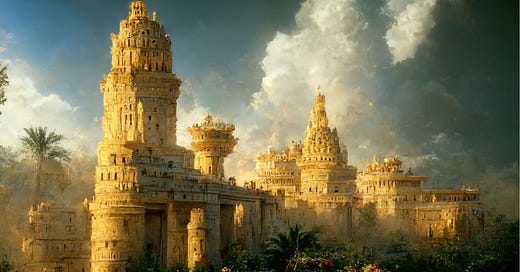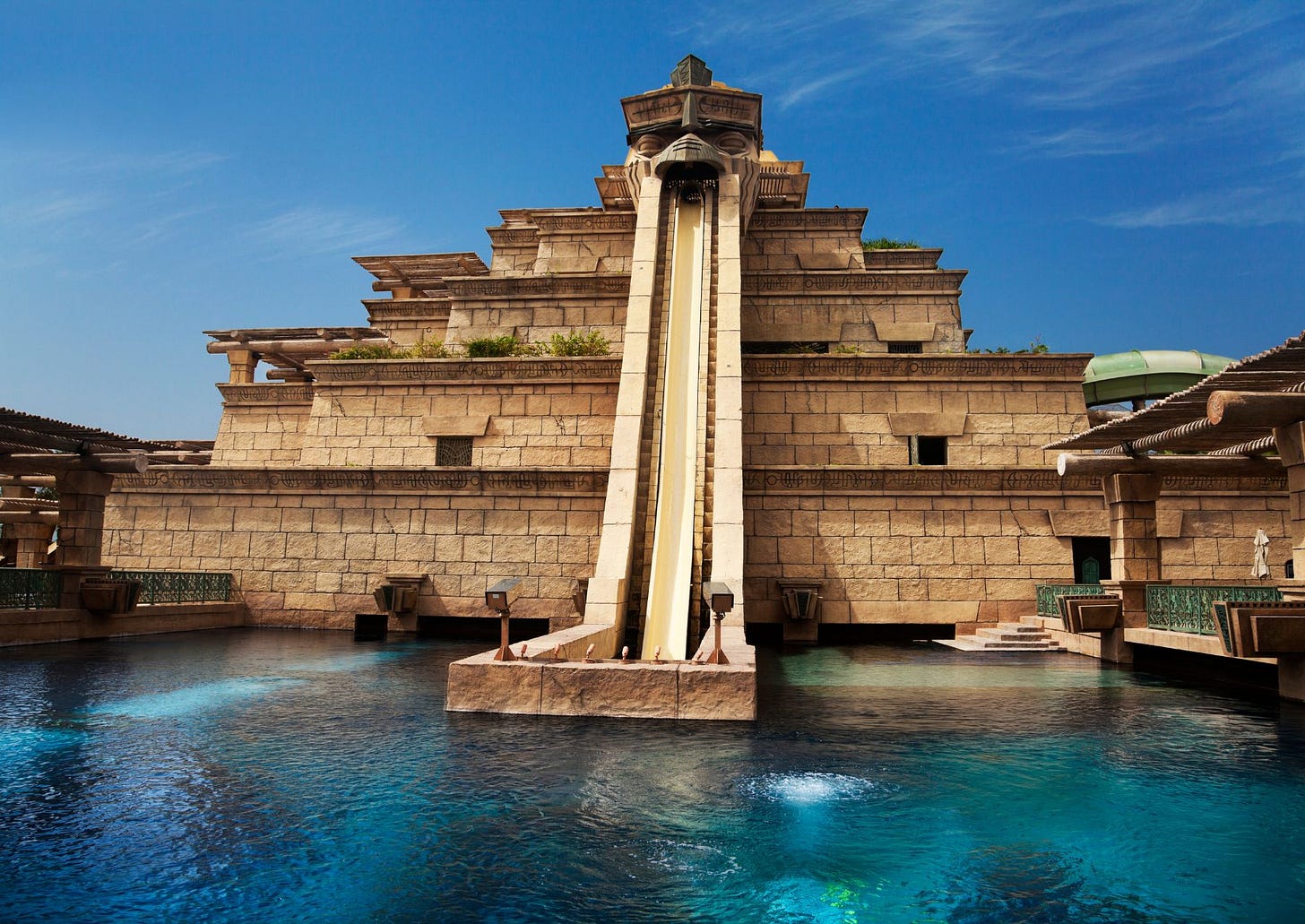The Forgotten Continents: The Rise and Fall of Lemuria and Atlantis
And Why This History Matters Right Now
There are stories older than time itself. Stories that don’t live in textbooks, but in whispers carried by the wind, in the bones of mountains, in the echoes of ancient shorelines swallowed by the sea. Stories that some say are myth, but that Indigenous peoples, mystics, and those who remember know to be truth.
Two lost continents—Lemuria and Atlantis. One, a civilization that lived in harmony with the Earth, that honored the deep, natural rhythms of existence. The other, an empire of brilliance, mastery, and eventual destruction. One fell to the sea. The other to its own hands. And now, we are left with only fragments, traces in our DNA, memories that come in dreams, and the undeniable feeling that we have been here before.
The Land Before the Fall: Lemuria
Long before what we now call history began, there was a vast continent stretching across the Pacific—Lemuria. Some called it Mu, some trace it to the lost lands of the Tamil and Dravidian peoples, others say it connected parts of what we now know as Australia, India, and the west coast of the Americas. But one thing is clear—this was no primitive civilization. Lemuria was a thriving, advanced society, a world of deeply spiritual people who lived in balance with nature, who understood the consciousness of the Earth itself.
The Lemurians were not a warlike people. They didn’t build towering fortresses or chase conquest. Their wisdom was not in domination, but in energy, in the frequencies of creation, in their connection to higher realms. They are said to have spoken through telepathy, to have understood the power of sound, vibration, and light long before modern science ever put names to these forces. Some believe they seeded the great spiritual traditions of the world—yoga, meditation, the deep connection to the cosmos found in Indigenous cultures from Hawaii to the Andes to Africa.
But even paradise is not eternal.
Lemuria’s fall did not happen in an instant. It was a slow unraveling, a gradual shift from harmony to imbalance. Lemuria was deeply feminine in nature—nurturing, fluid, emotionally and spiritually advanced. But there came a point where the balance tipped too far. The focus on intuition, emotional wisdom, and energetic sensitivity became ungrounded. Logic, structure, and action—the grounding forces of the masculine—were diminished. Over generations, this imbalance made Lemurians vulnerable. They drifted too far into the unseen, the ethereal, and lost the ability to anchor their wisdom in practical reality. Some say they ignored warning signs, that their spiritual power led them to believe they were untouchable, that they could transcend the Earth itself. And when the Earth shifted—when great floods came, when volcanoes raged—they were not prepared.
Some fled, some integrated into other cultures, carrying pieces of their wisdom into the world that followed. But Lemuria itself? It sank beneath the waves, swallowed by the same ocean it had revered.
The Empire of Power: Atlantis
While Lemuria was fading into the waves, another civilization was rising—Atlantis. Unlike Lemuria, Atlantis was an empire of intellect, science, and innovation. It was said to be an island nation, somewhere beyond the Pillars of Hercules—what we now call the Strait of Gibraltar—stretching across what would later become the Atlantic Ocean. It was a place of towering structures, of crystalline energy, of technology so advanced that even now, we are only beginning to rediscover what they knew.
Atlanteans were master builders, astronomers, healers, and rulers. They understood the geometry of the universe, they harnessed the Earth's energies, they built temples aligned with the stars, machines that could manipulate matter, cities that hummed with power. But where Lemuria had leaned too far into the feminine, Atlantis swung to the extreme of the masculine.
Atlanteans prioritized control, structure, and domination over intuition, feeling, and connection. They pursued power for the sake of power, pushing their technological mastery beyond ethical bounds. It was not enough to understand nature—they sought to control it. Not enough to work with energy—they wanted to harness it, to shape it to their will. The pursuit of knowledge became the pursuit of supremacy, and soon, factions formed. Those who still carried the balance of Lemurian wisdom—the priestesses, the healers, the stewards of harmony—found themselves at odds with those who saw energy and technology as weapons to be wielded.
There are stories of experiments that went too far, of distortions in the Earth’s magnetic fields, of crystal energy being used to manipulate the very forces of creation. Some say that in their hunger for ultimate power, Atlantean scientists disrupted the balance of the planet itself, triggering cataclysms they could not reverse. Others speak of war—of an internal conflict so vast, so destructive, that it shattered the very foundation of their civilization.
Either way, the end was the same.
The ocean swallowed Atlantis in a single day and night. What was once a beacon of knowledge, a pinnacle of human (or perhaps more-than-human) achievement, was lost beneath the waves, leaving behind only myths and ruins. But not everyone perished. Just as with Lemuria, survivors carried their knowledge outward, embedding it in the spiritual and architectural blueprints of civilizations yet to come. The echoes of Atlantis can be found in the pyramids of Egypt and Mesoamerica, in the sacred geometry of ancient temples, in the deep teachings of the mystery schools that still exist in hidden corners of the world.
Why Does This Matter Now?
Because history repeats itself.
Because we are standing on the edge of the same choices that faced Lemuria and Atlantis.
We live in a time of great technological advancement, of scientific breakthroughs that push the limits of what we once thought possible. But we also live in a time of disconnection, of imbalance, of a world hurtling toward environmental and energetic collapse. We are at a crossroads between remembering our harmony with the Earth or falling victim to the same hubris that sank Atlantis beneath the sea.
The old wisdom isn’t gone. It’s in us. It’s in the dreams, in the synchronicities, in the deep knowing that pulls us toward something greater than what this world tells us is real. The rise and fall of these civilizations are not just stories—they are warnings, reminders, a map back to something we have always known.
The Call for Balance
At the heart of these ancient stories is a lesson about balance. We are not meant to exist in the extremes. Lemuria fell because it lost its grounding, and Atlantis fell because it lost its heart. Today, we live in a world dominated by an imbalanced masculine—one that values logic over intuition, control over harmony, power over wisdom. But the answer is not to swing to the opposite extreme, to abandon structure and logic in favor of unchecked emotion and intuition. True balance comes when we integrate both.
Each of us holds these energies within us, regardless of gender. We are both the nurturer and the creator, the intuitive and the rational, the seeker and the builder. The Earth is calling for us to return to this balance—not just as individuals, but as a collective. When we do our own inner work to heal and integrate these energies, we help heal the greater world.
This is the moment to choose differently. To step away from the patterns of the past, to no longer oscillate between one extreme and the other, but to stand in the center. To honor both the sacred feminine and the sacred masculine within us. To create from a place of trust and surrender rather than conflict. From deep wisdom and knowing rather than fear.
The question is—will we listen this time?







